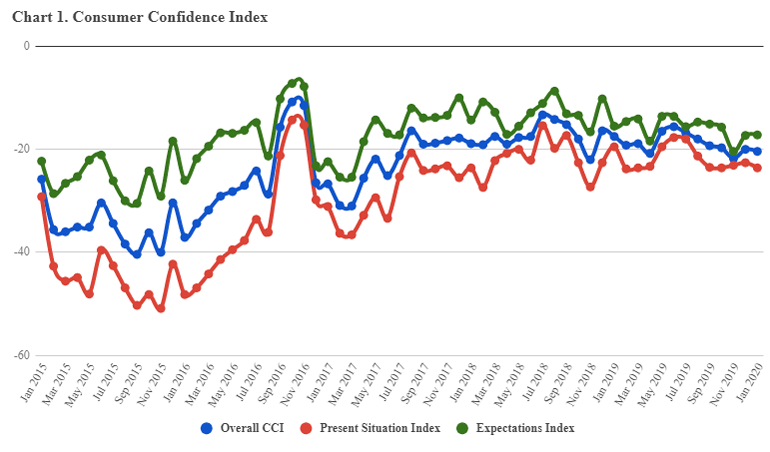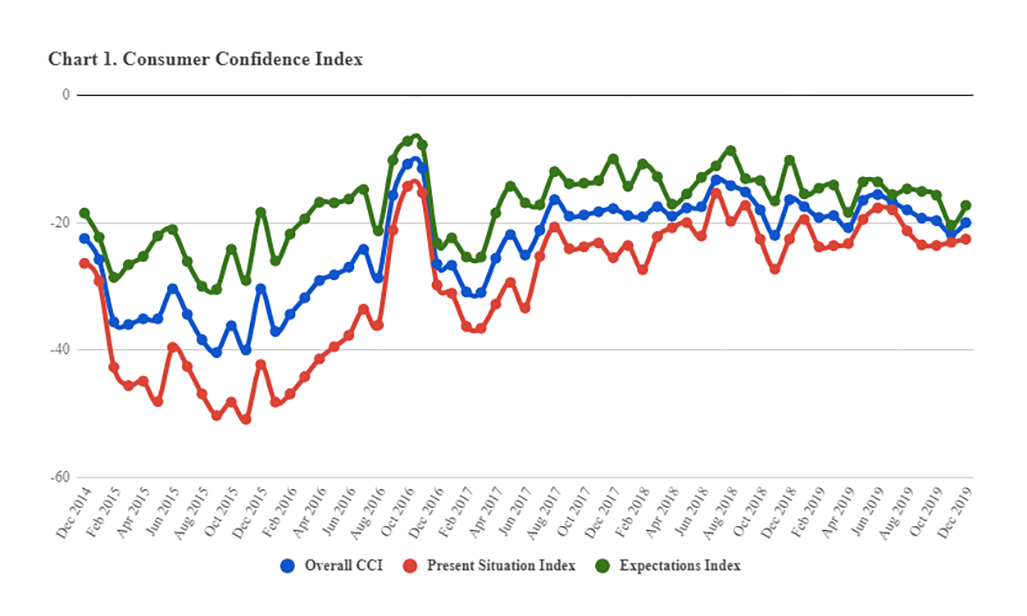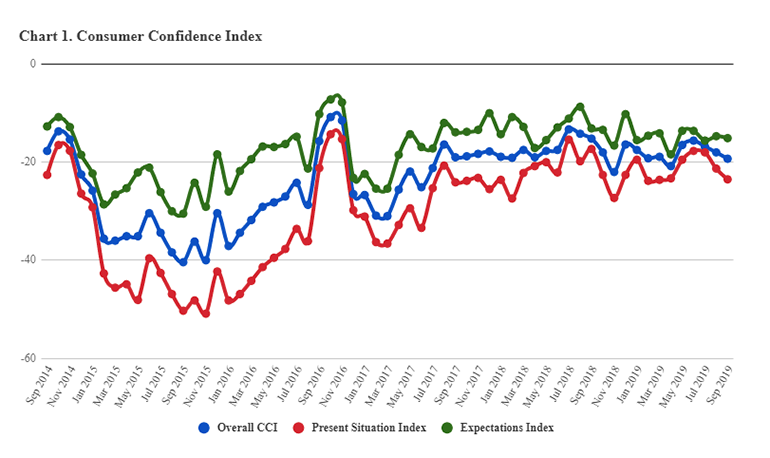- Details
A nationally representative sample of around 350 Georgians, interviewed in early January 2020, reveals that the Consumer Confidence Index (CCI) remained nearly the same, deteriorating by 0.4 index points (from -20 in December to -20.4 in January). Yet, as we observed in December 2019, Georgian Consumer Confidence improved by 1.8 index points. It is worthwhile to observe whether we have the same pattern of Consumer Confidence alterations in December and January every year. Interestingly, since 2012, when we started measuring consumer confidence in Georgia, Georgian consumers seem to enjoy Christmas and New Year Shopping and preparation in December (Consumer Confidence improves in December) and afterwards having a harsh period with less money left after the New Year celebration in January (Consumer Confidence declines in January). This pattern is present every year since 2015. Different pattern of Consumer Confidence fluctuations – consecutive decline in December and January – in previous years is correlated with parliamentary elections, being held in the fall season of 2012 and 2016 and presidential election, again being held in the fall of 2013.
- Details
A nationally representative sample of around 350 Georgians, interviewed in early October, November and December 2019, reveals that the Consumer Confidence Index (CCI) deteriorated in the two consecutive months, October and November, by 0.4 (from -19.3 in September to -19.7 in October) and 2.1 index points (from -19.7 in October to -21.8 in November) respectively. Yet, CCI showed an improvement of 1.8 index points in December (from -21.8 in November to -20 in December). A similar pattern is observed in both sub-indices, the Present Situation Index and the Expectations Index, over recent months, with an exception that in November the Present Situation Index improved by 0.5 index points, compared to October, from -23.6 in October to -23.1 in November.
- Details
A nationally representative sample of around 350 Georgians, interviewed in early September 2019, reveals that the Consumer Confidence Index (CCI) has deteriorated by 1 index point; from -18 in August to -19.3 in September. A similar pattern was observed in both sub-indices: the Present Situation Index dropped by 2.2 index points (from -21.3 to -23.5) and the Expectations Index experienced a slight decline of 0.4 index points (from -14.7 to -15.1). Therefore, the overall change in consumer confidence for September correlates most clearly with the Present Situation Index.
Table 1 highlights that almost every group experienced negative changes in September, aside from the “Young”. While, the negative change in CCI is notably higher for the “Without higher education” and “Male” groups. The overall CCI decreased by 3.1 index points for Georgian consumers without a higher education (from -24.1 in August to -27.3 in September) and by nearly 2.6 index points for men (from -18 in August to -20.6 in September). Several issues in particular affected these results: attitudes towards savings, major purchases at present, and expectations about the general economic situation in the country (notably for the groups “Without higher education” and “Male”).













